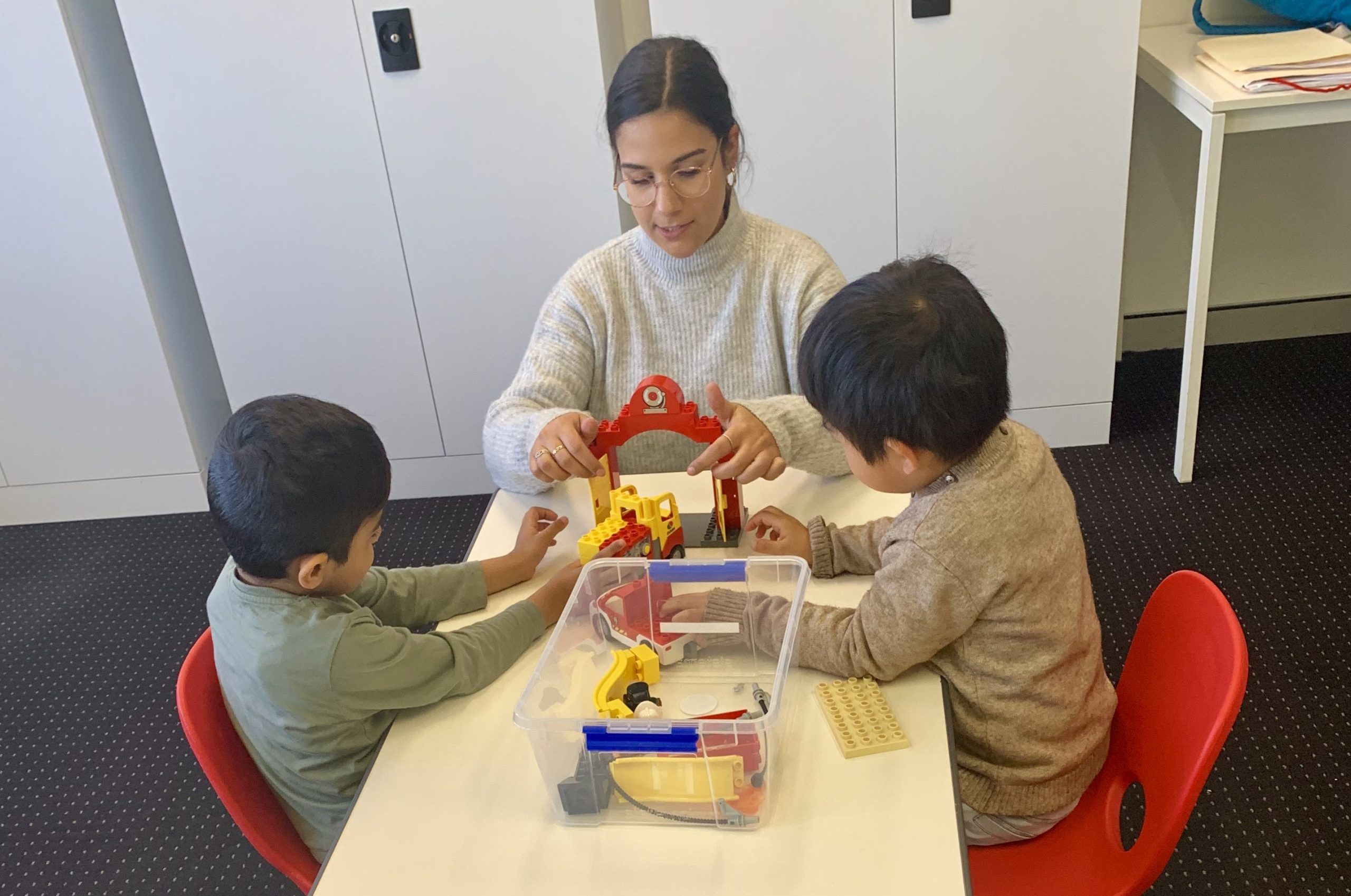
Understanding Naturalistic Developmental Behavioural Interventions (NDBIs)
Navigating the world of interventions for children with autism can overwhelm parents. They need to understand various aspects such as the meaning of each intervention, its effectiveness, supporting research, and which one best suits their child. Among the numerous options available, ESDM and Naturalistic Developmental Behavioural Interventions (NDBIs) stand out as comprehensive and effective approaches.
What Are Naturalistic Developmental Behavioural Interventions (NDBIs)?
NDBIs represent a newer class of interventions designed for young children with autism and other developmental delays. These interventions synthesise research on typical child development and the unique ways children with autism and developmental delays learn and communicate.
Key Components of NDBIs
NDBIs combine principles from Applied Behaviour Analysis (ABA) and developmental science. This hybrid approach enhances various developmental areas, including:
- Communication
- Engagement
- Joint Attention
- Imitation
- Peer Interactions
- Play Skills
- Social-Emotional Skills
- Challenging Behaviours
The Effectiveness of NDBIs
Research consistently shows that ABA effectively teaches new skills and reduces problematic behaviours. NDBIs build on this foundation by integrating ABA principles with developmental strategies, resulting in a holistic approach that addresses a broad spectrum of developmental needs.
Strategies Used in NDBIs
NDBIs, such as the ESDM, employ several key strategies to support skill-building and development
- Interactive, Natural Settings: Skills are taught within the context of daily routines, social interactions, and play activities.
- Environmental Reinforcers: Natural consequences related to the activity are used to reinforce learning.
- Child-Led Play: Activities are guided by the child’s interests to capture learning opportunities and increase motivation.
- Social Engagement: Emphasis is placed on building meaningful interactions within the learning context.
- Parent Coaching: Parents are trained to promote learning, engagement, and connection throughout daily family routines.
NDBIs vs. Traditional Tabletop Activities
Unlike traditional interventions that may focus on repetitive, tabletop drills with artificial reinforcers (such as tokens or food), NDBIs embed learning into play routines and daily activities. For instance, when a child requests a toy using the appropriate level of communication, receiving the toy acts as a natural reinforcer. Positive reinforcement, such as praise and affection, is also used extensively.
Why Choose NDBIs?
NDBIs combine the effective teaching methods of ABA with developmental techniques known to enhance motivation, engagement, and learning. This blend is used to create fun and appropriate learning activities for children and families, regardless of age or developmental level.
Key Benefits of NDBIs
- Holistic Development: Addresses a wide range of developmental areas beyond just behaviour management.
- Natural Reinforcements: Uses everyday activities and interests to reinforce learning.
- Parental Involvement: Empowers parents with the tools and strategies to support their child’s development.
- Child-Centred: Focuses on the child’s interests and natural environments, making learning more relevant and engaging.
Conclusion
NDBIs represent a powerful and comprehensive approach to supporting children with autism and developmental delays. The ESDM takes the well-researched ABA’s structured teaching methods and combines them with developmental science’s engaging and motivational strategies, NDBIs provide a well-rounded intervention that is both effective and enjoyable for children and their families.
If you’re interested in learning more about NDBIs and how they can benefit your child, please contact us at OneOnOne Children’s Therapy. Our team is dedicated to supporting your child’s development through evidence-based, child-centred interventions.
Is the ESDM and NDBI?
Many existing treatment models fall into the NDBI category. At OneOnOne Children’s Therapy, we focus on delivering NDBIs for our young children with autism, social communication difficulties, and developmental delays. We use the Early Start Denver Model (ESDM) and Project ImPACT (Improving Parents as Communication Partners). We proudly stand as the largest provider of the ESDM in New South Wales and one of only three clinics using Project ImPACT. Our Director, Susan Marden, serves as a Project ImPACT Trainer Consultant and is the first Certified Project ImPACT Coach in Australia.
We believe that NDBI’s are the future of intervention for young children with autism and we look forward to seeing more research to support their effectiveness.
How do I find out more about an NDBI?
For more information about the Early Start Denver Model (ESDM) and Project ImPACT (Improving Parents as Communication Partners) head to our website at www.oneononechildren.com.au or call us on (02) 80657837. Our clinic the largest Early Start Denver Model (ESDM) clinic in Sydney. Our certified ESDM therapists are trained to the highest levels of fidelity. We are one of a very small number of clinics that offer the highly regarded Project ImPACT training model.
Learn more about the ESDM
- What happens in an ESDM assessment?
- What does an ESDM session look like?
- See how Estelle progressed in the ESDM
- Progress in the ESDM
- Our Intensive ESDM Program
We’re here to support you
At OneOnOne Children’s Therapy, we believe that every child deserves the opportunity to grow and thrive.
Our clinics are not just a space for therapy – it’s a place where children can discover their strengths, overcome challenges, and reach their full potential.
By combining innovative therapy techniques with a stimulating and supportive environment, we’re proud to offer a holistic approach to paediatric therapy and early intervention that addresses the unique needs of each child we support.
Reach out for support
If you’re concerned about your child’s development or want to learn more about how the ESDM can help your child, OneOnOne Children’s Therapy is here to help.
Call our Bondi Junction and Mascot clinics on (02) 80657837 or email. You can book a free 30 minute phone call with us to discuss how we can support your child’s unique journey.
